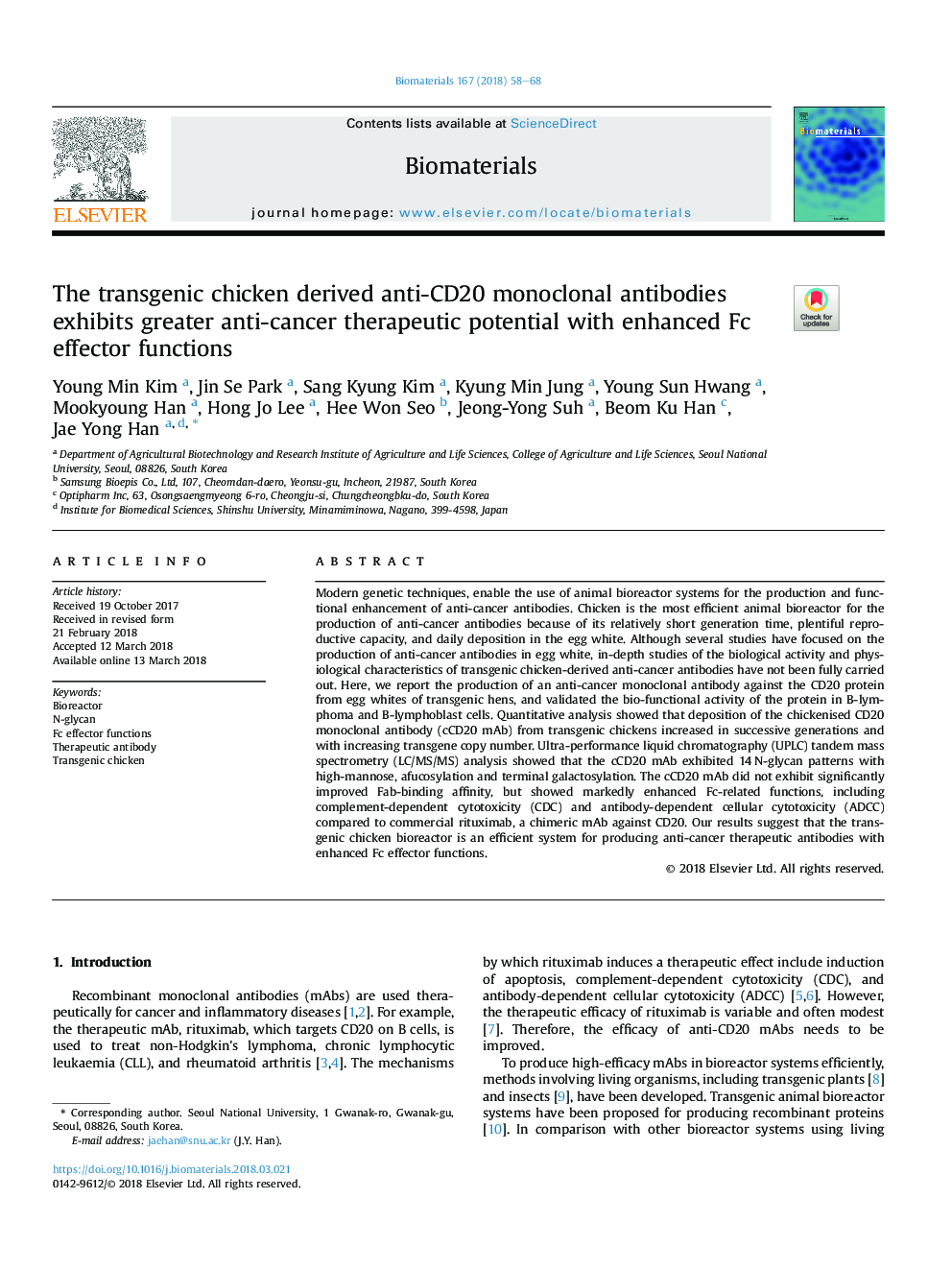| Article ID | Journal | Published Year | Pages | File Type |
|---|---|---|---|---|
| 6484548 | Biomaterials | 2018 | 11 Pages |
Abstract
Modern genetic techniques, enable the use of animal bioreactor systems for the production and functional enhancement of anti-cancer antibodies. Chicken is the most efficient animal bioreactor for the production of anti-cancer antibodies because of its relatively short generation time, plentiful reproductive capacity, and daily deposition in the egg white. Although several studies have focused on the production of anti-cancer antibodies in egg white, in-depth studies of the biological activity and physiological characteristics of transgenic chicken-derived anti-cancer antibodies have not been fully carried out. Here, we report the production of an anti-cancer monoclonal antibody against the CD20 protein from egg whites of transgenic hens, and validated the bio-functional activity of the protein in B-lymphoma and B-lymphoblast cells. Quantitative analysis showed that deposition of the chickenised CD20 monoclonal antibody (cCD20 mAb) from transgenic chickens increased in successive generations and with increasing transgene copy number. Ultra-performance liquid chromatography (UPLC) tandem mass spectrometry (LC/MS/MS) analysis showed that the cCD20 mAb exhibited 14â¯N-glycan patterns with high-mannose, afucosylation and terminal galactosylation. The cCD20 mAb did not exhibit significantly improved Fab-binding affinity, but showed markedly enhanced Fc-related functions, including complement-dependent cytotoxicity (CDC) and antibody-dependent cellular cytotoxicity (ADCC) compared to commercial rituximab, a chimeric mAb against CD20. Our results suggest that the transgenic chicken bioreactor is an efficient system for producing anti-cancer therapeutic antibodies with enhanced Fc effector functions.
Related Topics
Physical Sciences and Engineering
Chemical Engineering
Bioengineering
Authors
Young Min Kim, Jin Se Park, Sang Kyung Kim, Kyung Min Jung, Young Sun Hwang, Mookyoung Han, Hong Jo Lee, Hee Won Seo, Jeong-Yong Suh, Beom Ku Han, Jae Yong Han,
